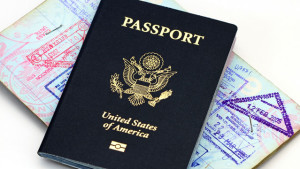Dear Liz: I was employed as a tour guide for seniors but because of COVID-19, all our trips are canceled. I depended on the income because I have no other, besides Social Security, which I started at age 62. I now have credit card debt. I also needed a new car (mine was 24 years old and dying) so I’m leasing a car. The lease is up early next year and I would love to keep the car, if possible. My question is what to do with my home, where I have lived for more than 65 years. It was our parents’ home and now it’s owned equally with my brother, although because I live here, I pay everything: mortgage, taxes, insurance and so on. Should I sell my house and get an apartment? Rent it out? Get a roommate? Getting a roommate would not be my first choice, but I really want to stay in my home that I love so much.
Answer: If getting a roommate would give you enough income, then that may be the best solution — particularly since staying in your home is a top priority. Ideally, the rent you could charge would be enough to allow you to make ends meet, pay off your debt and save to buy your car.
If you’d still be running a deficit, however, then consider other solutions. If you can’t rent the home for enough to keep your head above water, then you probably should consider a sale.
One option, if your brother is amenable, is to sell some or all of your equity to him with the understanding that you could remain in the home. Make sure to get a written agreement; a lawyer could help with this. If your brother is not willing or able to buy your equity, you may have to put the house up for sale.
These are difficult changes, but your job isn’t likely to come back anytime soon. Finding a new gig, at your age and in this economy, may not be possible. Selling the house could free up some money for the future and allow you to reduce expenses rather than going deeper into debt.
 Today’s top story: Ask a points nerd: Why won’t the FAA require masks? Also in the news: How to get started if you’ve never had a bank account, Virgin Atlantic files for bankruptcy in the US, and it’s time for a mid-year tax withholding checkup.
Today’s top story: Ask a points nerd: Why won’t the FAA require masks? Also in the news: How to get started if you’ve never had a bank account, Virgin Atlantic files for bankruptcy in the US, and it’s time for a mid-year tax withholding checkup.  Today’s top story: Why student loan borrowers shouldn’t wait on Congress for more relief. Also in the news: A new episode of the SmartMoney podcast on safe travel and handling old debts, how to make sure a contract tracer isn’t a scammer, and what to do if your health insurance drops your monthly prescription.
Today’s top story: Why student loan borrowers shouldn’t wait on Congress for more relief. Also in the news: A new episode of the SmartMoney podcast on safe travel and handling old debts, how to make sure a contract tracer isn’t a scammer, and what to do if your health insurance drops your monthly prescription. Today’s top story: Smart money moves when cash is tighter than time. Also in the news: A new episode of the SmartMoney podcast on losing your health insurance and setting financial goals, how a gap year might haunt you financially, and how to boost your credit score with on-time Netflix payments.
Today’s top story: Smart money moves when cash is tighter than time. Also in the news: A new episode of the SmartMoney podcast on losing your health insurance and setting financial goals, how a gap year might haunt you financially, and how to boost your credit score with on-time Netflix payments.  Today’s top story: Why missing college this fall is a bad idea. Also in the news: Why you should get your finances in top shape now to refi your student loans, choosing the Medigap plan that’s right for you, and how to apply for a $1,000 grant if you’re a freelancer or gig economy worker.
Today’s top story: Why missing college this fall is a bad idea. Also in the news: Why you should get your finances in top shape now to refi your student loans, choosing the Medigap plan that’s right for you, and how to apply for a $1,000 grant if you’re a freelancer or gig economy worker.